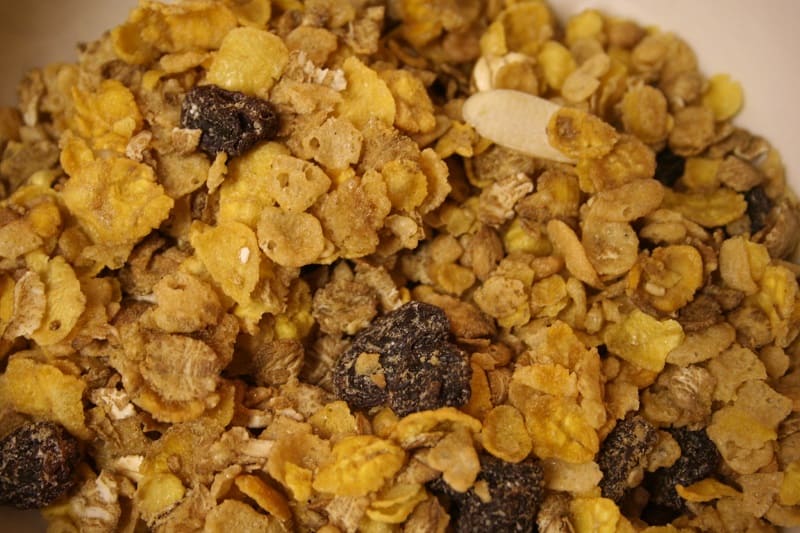Muesli can cause flatulence – the reasons for this can be varied. The popular breakfast can lead to air in the gastrointestinal tract due to its high fiber content.
This is why muesli can cause bloating
There are many reasons muesli can cause bloating. We show you some of the reasons for this here:
- Muesli fans should change gradually and take it slow. If you suddenly change your diet and eat muesli every morning from now on, this can lead to flatulence because your body cannot adjust to it.
- Since muesli often consists of whole grains that contain a lot of fiber, it can cause flatulence.
- Additionally added (white) sugar and other sweeteners can make it difficult for our body to digest whole grain products or oatmeal.
- Some consumers notice that adding milk (cow’s milk) to muesli makes them bloated. This can often be due to lactose intolerance.
- Muesli lovers also notice bloating when they add fresh fruit because the body has trouble absorbing the fructose.
So that your muesli doesn’t cause you flatulence – here are a few tips
Basically, it is advisable to try out what is good for you. Put your own muesli together, for example. You can combine oatmeal with quinoa, for example, or add seeds and nuts to your muesli. Add just one new type of fruit or dried fruit at a time and see how your body reacts to it. Quark or yoghurt is often better tolerated than pure milk in muesli. What you can do to eat your muesli with as little flatulence as possible:
- Gradually switch to muesli and take your time eating. Chew slowly because the enzyme amylase in saliva allows carbohydrates to be better absorbed in the stomach.
- Don’t eat overly sweetened granola. Rather use natural alternatives such as honey.
- If you suffer from lactose intolerance or are unsure whether you can tolerate cow’s milk, try plant-based milk products such as oat milk, rice milk, soy milk or almond milk. It often helps to “soak” the muesli in the milk some time beforehand to make it more digestible.
- When it comes to fruit, it is advisable to simply try out what is good for your body. Some people are sensitive to fruits that contain a lot of fructose, such as cherries, mangoes, pineapples or apples. Pears contain a lot of sorbitol, which can cause stomach pain.
- Dried fruits such as raisins are often used in muesli because they are particularly good for digestion. However, the high sugar content and fiber can cause flatulence, so use sparingly for the time being.
Muesli causing flatulence – FAQs
Why does muesli make me fart?
Gas-making fructans and farty fibre are found in grains, such as oats and wheat products, so bread, pasta and wholegrains can lead to wind.
Why does granola cereal give me gas?
“On top of the added fiber, some granola bars also contain sugar alcohols known to cause intestinal gas,” she says. Look for sorbitol, mannitol, and xylitol — all sugar alcohols — among the ingredients on nutrition labels.
Can muesli cause bloating?
Cereals are also classed as insoluble fibres, so when mixed with water they create a bulking effect that improves the movement of waste around your digestive system. It may well be a variety of these processes that’s making you feel bloated in the morning.
How do you stop gas after eating oatmeal?
Add fiber to your diet slowly.
- You may experience bloating and gas at the beginning of your fiber intake. But over time, your body will adjust to the fiber and you should see a reduction in bloating and gas.
- Remember to increase fiber with water at the same time.



